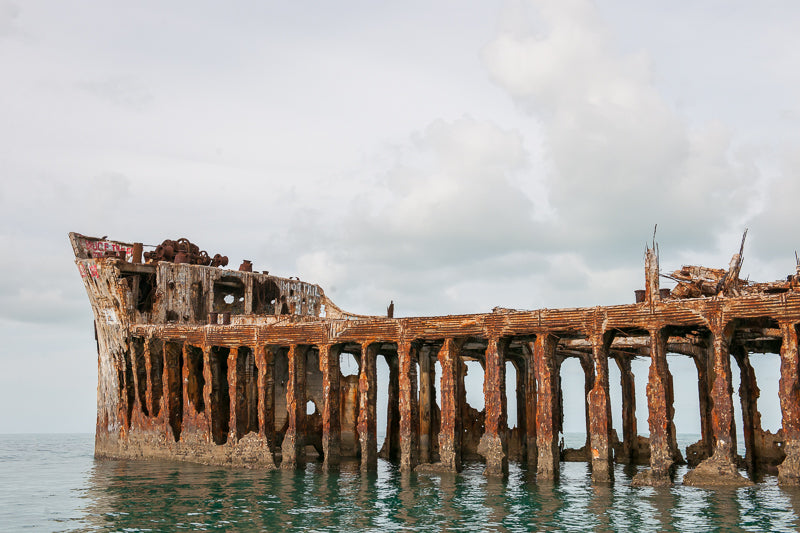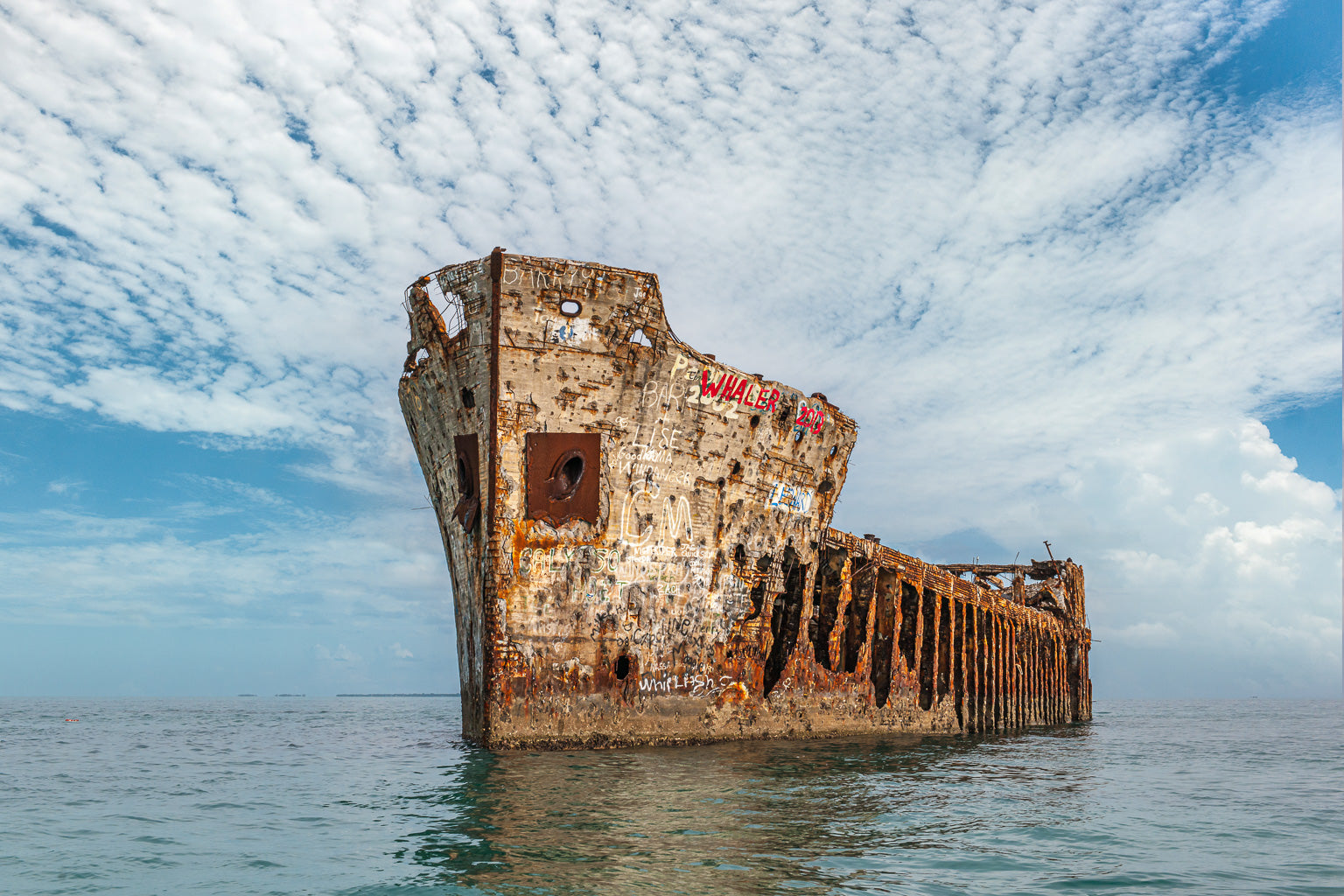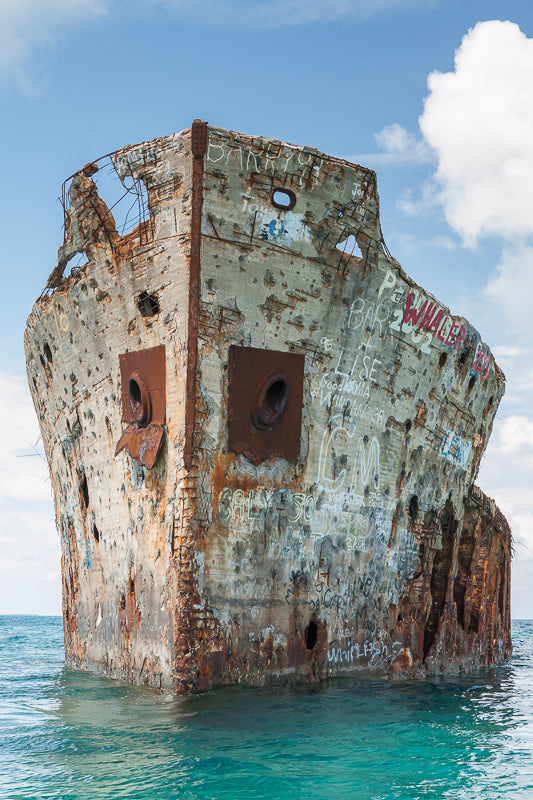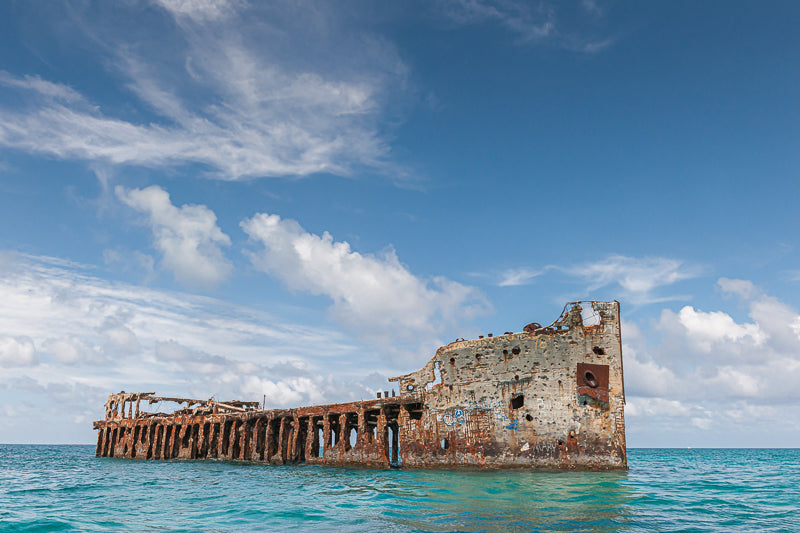Feb 26, 2022
Sapona Shipwreck
As a photographer with a penchant for the whispers of history and the allure of nature, my journey to the Sapona Shipwreck was more than a photographic expedition; it was a voyage through time. Nestled in the waters near Bimini in the Bahamas, the Sapona's story is a captivating blend of history and natural wonder.
The Birth of the Sapona
The tale of the Sapona begins against the backdrop of World War I, an era of innovation borne out of necessity. With steel in short supply, the U.S. government, under the leadership of President Woodrow Wilson, turned to alternative materials, leading to the creation of the Sapona using ferrocement. Initially envisioned as a troop transport, the ship's destiny was rerouted by the war's end, marking the beginning of its varied and colorful history.
Post-War Transformations
In the hands of Carl Fisher, an entrepreneur who played a crucial role in developing Miami Beach, the Sapona embarked on a new journey. It mirrored the economic shifts of the post-war era, serving variously as a casino and an oil storage facility. However, the most intriguing phase of its life began with the Prohibition era in the United States.
The Prohibition Era and A Dream Unfulfilled
Bruce Bethel's vision to transform the Sapona into a floating nightclub was a creative response to Prohibition's restrictions on alcohol. This dream, however, was short-lived. A devastating hurricane in 1926 battered the ship, running it aground near Bimini. This dramatic turn of events marked the end of its life as a mobile vessel and set the stage for its final chapter as a shipwreck.
A World War II Relic and a Bermuda Triangle Enigma
The Sapona Sapona Shipwreck's story took another turn during World War II. The ship found a new purpose as a target for U.S. bombers, preparing for aerial combat. This period of history ties the Sapona to the enigmatic Bermuda Triangle, particularly with the disappearance of Flight 19 in 1945, a mystery that has fueled the legend of this infamous region.
The Sapona Today: An Underwater Haven
The Sapona rests in the shallow waters of Bimini, a semi-submerged testament to its storied past. It has become a vibrant ecosystem, supporting diverse marine life. Its structure, encrusted with coral, creates a unique underwater landscape that's both a haven for aquatic creatures and a paradise for photographers.

A Photographer's Perspective
Capturing the essence of the Sapona Shipwreck was a challenge and a privilege. The interplay of light, shadow, and marine life around the wreck created a surreal environment ideal for compelling underwater photography. Each dive brought discoveries, from the vibrant colors of tropical fish to the intricate patterns of coral growth on the ship's concrete body.
Visiting the Sapona: Tips and Insights
For those drawn to explore this underwater marvel, Bimini is the gateway to this historical treasure. Easily accessible from Miami, whether by air or sea, the journey is part of the adventure. Local tour operators offer valuable insights and the necessary equipment for a safe and enriching experience. The best times to visit are between late spring and early fall when the weather and water conditions are most favorable for diving and snorkeling.
The Legacy of the Sapona
Reflecting on my experiences with the Sapona, it symbolizes human ingenuity, resilience, and the relentless march of time. From its beginnings as a wartime invention, through its various post-war incarnations, to its final role as a sanctuary for marine life, the Sapona's journey is a microcosm of the 20th century's tumultuous history. Its remains, resting in the Bahamian waters, continue to fascinate and inspire, offering a poignant reminder of the ever-changing nature of our world.















